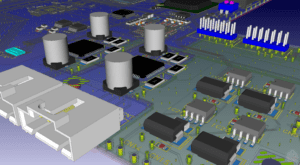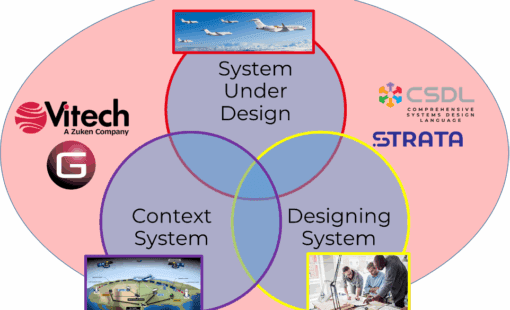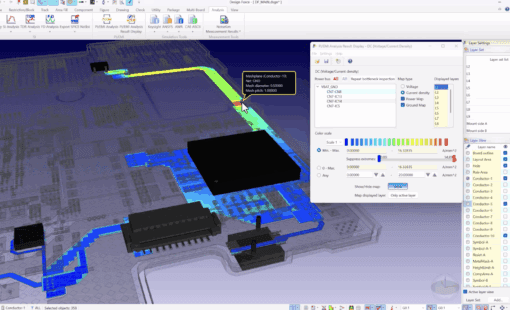Experts recognize quantum computing as a highly promising and impactful technological advancement. With the prospect of reshaping our understanding of computational possibilities, this field holds immense potential across industries, especially for scientific and industrial applications. As we venture into this new era, it is crucial to understand emerging trends shaping quantum computing and how they can be harnessed for practical applications. In this post, we’ll discuss trends for scientific and industrial applications and learn how Zuken’s CR-8000 is supporting this transition.
Quantum Computing in the Scientific and Industrial World
Quantum computing is rapidly advancing, reshaping scientific and industrial landscapes. Unlike classical computers—which use bits as the smallest unit of information—quantum computers use qubits. These qubits exploit quantum mechanics principles, like superposition and entanglement, to perform complex calculations at unprecedented speeds.
One significant trend is the development of quantum algorithms tailored for specific applications. For example, in drug discovery, quantum algorithms can simulate molecular interactions more accurately and quickly than traditional methods. This capability has profound implications for the pharmaceutical industry, potentially reducing the time and cost of developing new medications.
Furthermore, the integration of quantum computing with artificial intelligence (AI) is another key emerging trend. Quantum AI algorithms can analyze vast datasets more efficiently, enhancing the predictive accuracy of machine learning models. This synergy is particularly promising in areas like climate modeling. Here, the ability to process and interpret large-scale environmental data can result in more accurate predictions of climate change impacts.
Additionally, quantum computing is making strides in cybersecurity. For example, quantum key distribution (QKD) offers a theoretically unbreakable encryption method, leveraging the principles of quantum mechanics. Other ideas, like quantum random number generation (QRNG), can play a vital role in enhancing cybersecurity measures. By using QRNG, genuinely unpredictable numbers can be generated, offering advanced levels of security for cryptographic systems.
Zuken’s CR-8000 and Quantum Computing
In the context of quantum computing, Zuken’s CR-8000 is an important tool for supporting classical electronic design and product development. CR-8000 is a comprehensive suite for printed circuit board (PCB) design, offering advanced capabilities well-aligned with the needs of industries exploring these applications.
A standout feature of CR-8000 is its robust design optimization capabilities. Quantum computing applications often require highly specialized PCB designs to manage complex circuitry and thermal management. To navigate this, CR-8000’s Design Force encompasses sophisticated layer stack management and signal integrity analysis. These two features are instrumental in creating PCBs that meet the stringent requirements of advanced computing hardware.

Moreover, CR-8000’s system-level design approach is crucial for integrating quantum computing modules into larger electronic systems. Its ability to handle multi-board designs and co-design electronic and mechanical elements allows for the development of comprehensive systems. Notably, this design approach is fundamental for harnessing the power of advanced computing.
In addition, CR-8000’s high-speed design features complement commonly used high-frequency operations. Its capability to manage signal integrity and reduce electromagnetic interference is essential, as even minor disturbances can impact operation performance.
A Quantum Future
As quantum computing matures, its integration into diverse sectors reveals its extensive potential. The advancements in quantum algorithms, AI integration, and cybersecurity demonstrate a notable progression in the field. Fortunately, tools like Zuken’s CR-8000 are providing necessary support in electronic system design, bridging the gap between quantum and classical computing.
Related Products and Resources

- Blog

- Blog

- Blog

- Blog

